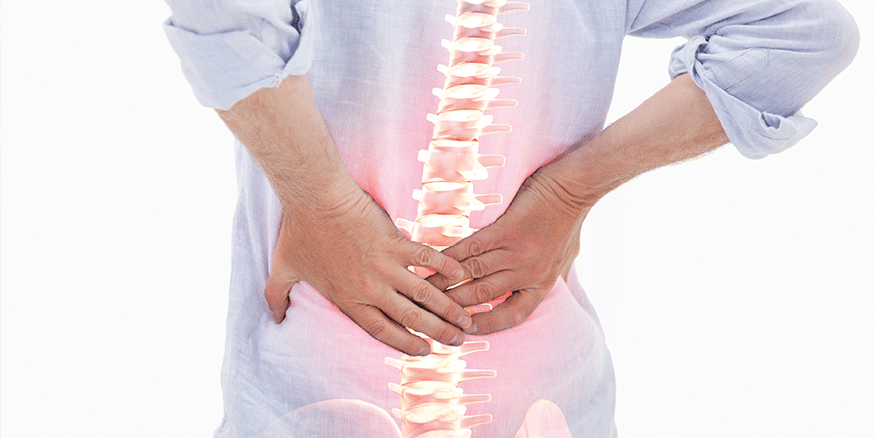For many new mothers, childbirth is an exciting time, but it can also bring a host of physical challenges. One common issue that many women face after giving birth is persistent lower back pain. It’s something that often lingers long after the joy of welcoming a baby into the world, leaving mothers struggling to care for their little ones while dealing with discomfort. If you’re experiencing ongoing postpartum back pain, an orthopaedic spine specialist might be the answer you’ve been looking for. Here’s how they can help.
What’s A Postpartum Back Pain
Back pain after childbirth is not uncommon. In fact, studies show that a significant number of women experience it in the months following delivery. The pain can vary from mild to severe and is often located in the lower back. The reasons for this are multifaceted. During pregnancy, the body undergoes significant changes: increased weight, shifting posture, and changes in the alignment of the spine. After delivery, the muscles and ligaments in your back and pelvis may still be weakened or stretched out, which can lead to ongoing discomfort.
In addition, the physical demands of caring for a newborn, such as bending, lifting, and feeding, can exacerbate back pain. The good news is that there are ways to manage this pain, and an orthopaedic spine specialist is equipped to help you do just that.
How an Orthopaedic Spine Specialist Can Help
When you see an orthopaedic spine specialist for persistent postpartum back pain, the first step will usually involve a thorough evaluation. The specialist will want to understand your symptoms in detail, including the intensity of the pain, when it started, and what activities make it worse or better. They’ll also ask about your pregnancy and delivery to get a full picture of any factors that may have contributed to your pain.
Once the evaluation is complete, your orthopaedic spine specialist will work with you to develop a treatment plan that’s tailored to your needs. Here are some of the most common ways they can help:
Physical Therapy
Physical therapy is often one of the first treatments recommended for postpartum back pain. A physical therapist will work with you to strengthen the muscles in your back, abdomen, and pelvic floor. These muscles play a key role in supporting your spine, and rebuilding their strength can help relieve pain and prevent further discomfort. Physical therapy can also improve your posture, which is crucial for avoiding strain on your back while caring for your baby.
Your physical therapist will likely give you a series of exercises to do at home as well. These exercises are designed to improve flexibility, strength, and endurance, which can help you gradually return to your normal activities without the pain.
Minimally Invasive Procedures
In some cases, if physical therapy and chiropractic care don’t provide enough relief, an orthopaedic spine specialist may suggest minimally invasive procedures. These procedures are designed to treat the source of the pain with as little disruption to the body as possible.
One option is an epidural steroid injection, which involves delivering medication directly to the area of pain. This can provide significant relief, allowing you to participate more fully in physical therapy and other treatments. In some cases, your specialist might also recommend radiofrequency ablation, a procedure that uses heat to disrupt nerve activity and reduce pain.
These minimally invasive options are typically considered only if other treatments haven’t been effective, and they can be a great way to help manage chronic pain without the need for more invasive surgery.
Lifestyle and Posture Adjustments
In addition to medical treatments, your orthopaedic spine specialist may recommend changes to your daily habits. Simple adjustments to your posture, how you lift and carry your baby, and the positions you use during feeding can make a world of difference in managing back pain.
For instance, when lifting your baby, it’s important to bend from the knees rather than the waist. This reduces strain on your lower back. Your specialist may also recommend using a supportive chair for feeding, and ensuring that you’re not slumping or rounding your back.
Sometimes, small changes in how you move throughout the day can have a big impact on your comfort level.
When to See an Orthopaedic Spine Specialist
While most cases of postpartum back pain improve over time, it’s important to see a specialist if the pain persists or gets worse. If you’re unable to care for your baby or return to your normal activities because of your back pain, it’s time to seek help. An orthopaedic spine specialist can help you understand the cause of your pain and guide you toward the most effective treatment options.
Get Your Spine Checked!
Persistent postpartum back pain doesn’t have to be something you just “live with.” If you’re dealing with ongoing discomfort, an orthopaedic spine specialist can help you find relief through physical therapy, chiropractic care, and other minimally invasive treatments. With the right approach, you can regain control over your body and enjoy your time with your newborn without the distraction of back pain.
If you’re struggling with postpartum back pain, don’t wait—schedule an appointment with a spine specialist today. Taking care of yourself means being able to take better care of your baby.










